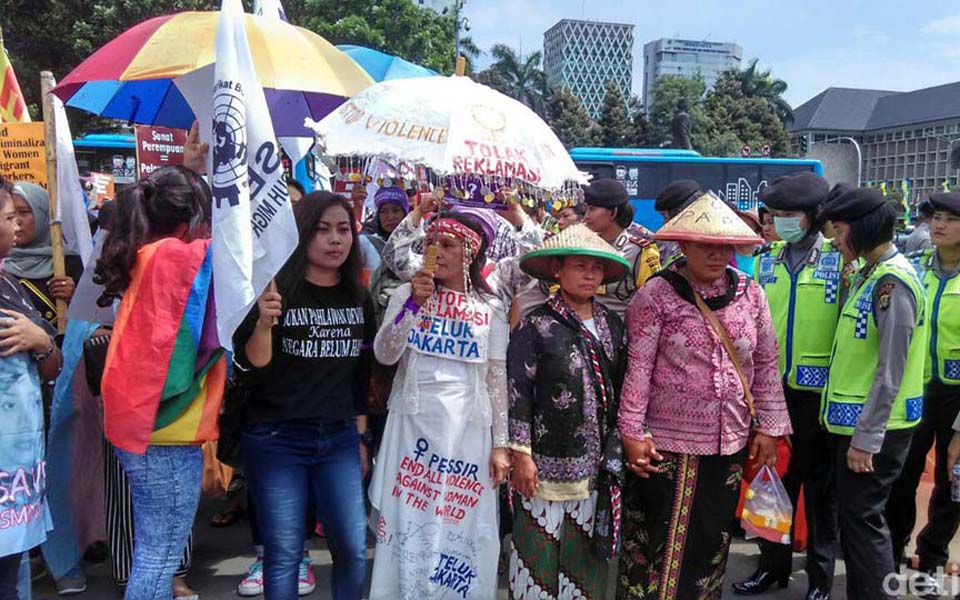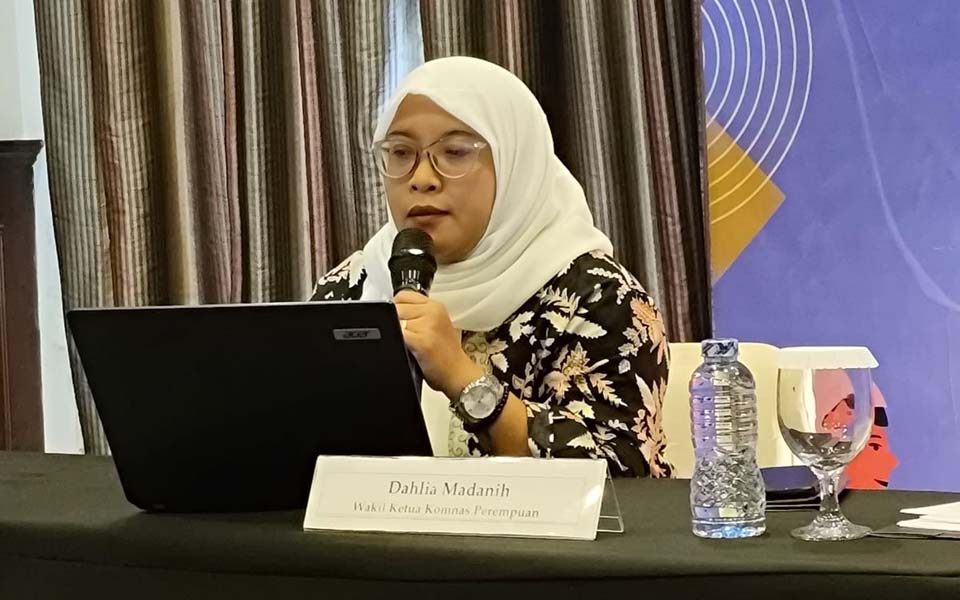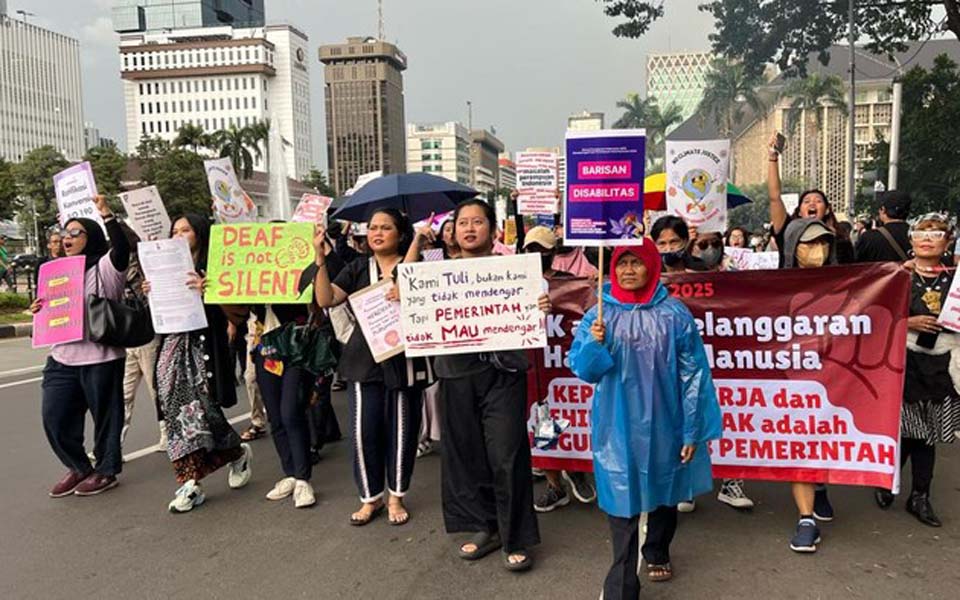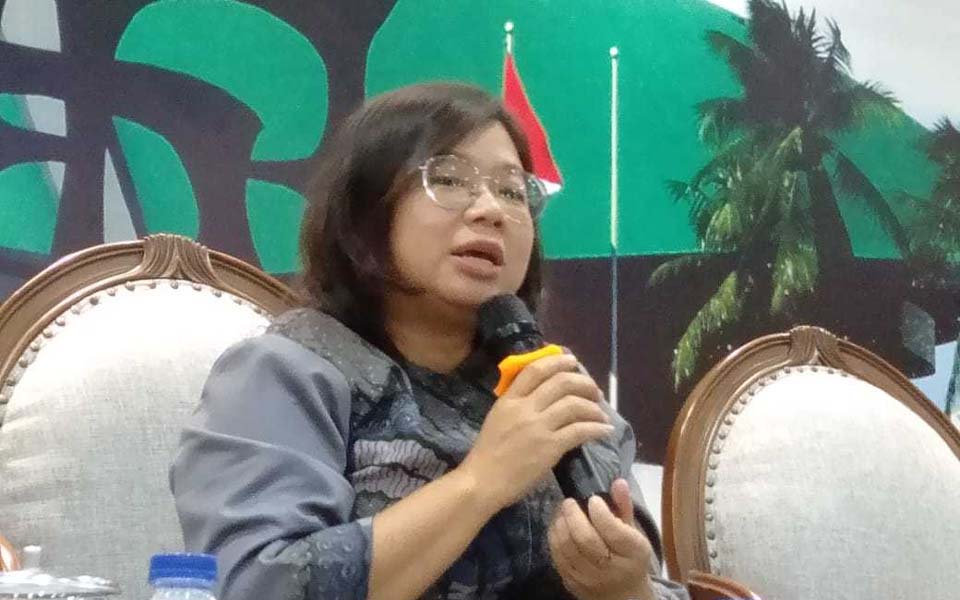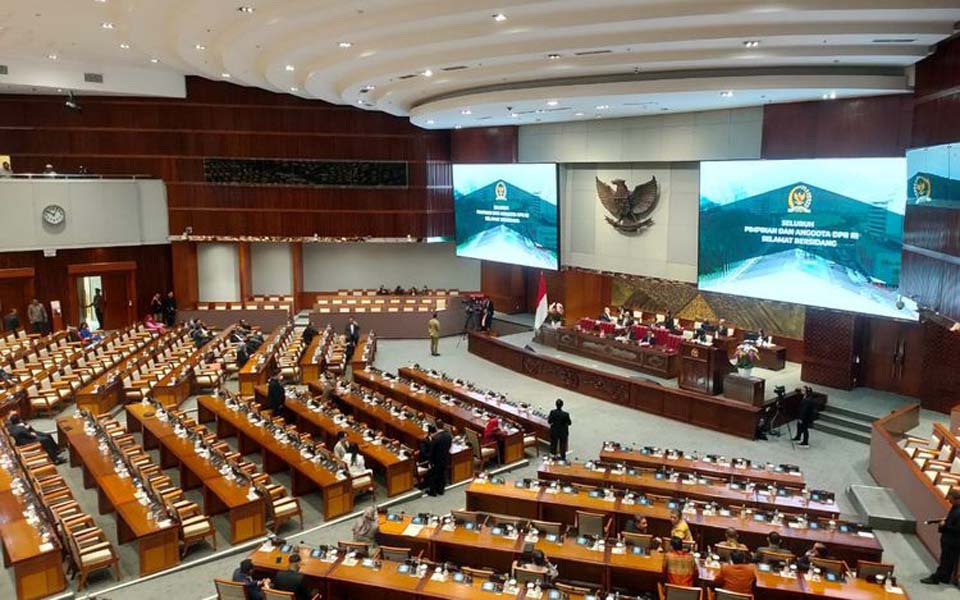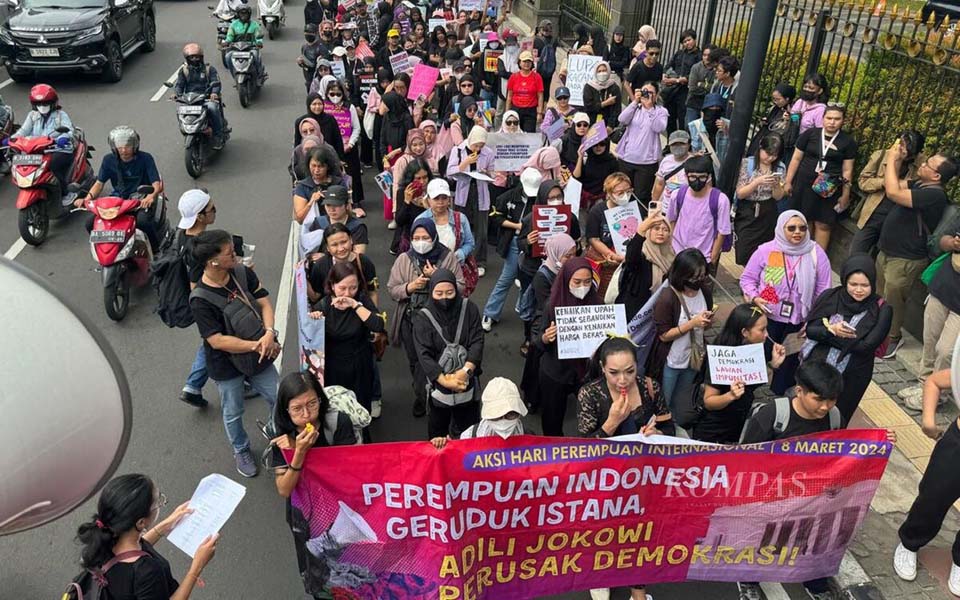Jakarta – The commemoration of International Women’s Day (IWD) was marked by the accumulation of bitter gifts in the form of the soaring price of basic commodities and soybean, the bacteria infection of powdered milk products and the high cost of education and healthcare. All of which has been added to the long list of violations against women in Indonesia.
A series of peaceful actions took place in various cities in Indonesia throughout Saturday March 8 articulating demands related to the situation facing women in Indonesia today. Many of the demands were also related to recent incidents involving the tragic death of mothers and children due to hunger or desperate mothers killing themselves and their children because of poverty, as well as the death of Indonesian women migrant workers employed overseas.
Rallying at the Hotel Indonesia roundabout in Central Jakarta, hundreds of women called for a reduction in the price of basic commodities and the eradication of poverty. “We are calling for more women who side with prosperity to enter the political field, because the root of all of these problems are political policies”, said Nuraini from the group Indonesian Heroines of Democracy (SDI).
Also at the Hotel Indonesia, activists from the Workers Challenge Alliance (ABM) and Free Women (Perempuan Mahardika) took up the issue of workers rights. The National Awakening Women’s Movement (PPKB) focused on the issue of women migrant workers, which was linked to the weakening of the spirit of nationalism. “Government officials panic when the Papuan flag is raised, the government becomes angry when photographs of the head of state are burnt by demonstrators. The irony is that there is no concern for the women and their children who are dying of hunger. Government officials’ feelings of nationalism are not troubled when our women migrant workers are abused and mistreated in other countries”, the group said in a press release signed by PPKB general chairperson Badriyah Fayumi.
Demands for justice for migrant workers was also articulated by Migrant Care executive director Anis Hidayah. The organisation called for migrant domestic workers to be acknowledged as formal workers and protected by the law as well as urging the government to produce bilateral and regional regulations that protect Indonesian migrant workers.
A press release by the International NGO Forum on Indonesian Development signed by Dian Kartika Sari and Wahyu Susilo called for the fulfillment of the right to adequate food, an end to the trade liberalisation of basic foods, an end to the commodification of women in the placement of migrant workers and an end to all forms of forced evictions.
In the Central Java provincial capital of Semarang, the Network for the Protection of Women and Children (JPPA) urged the government to pay attention to women’s reproductive healthcare.
IWD was originally proposed by Clara Zetkin, a women socialist from Germany to commemorate a strike by garment workers in the United States on March 8, 1857. IWD, which was proclaimed to commemorate the women’s rights movement, was first celebrated in 1911. In Indonesia it only began to be commemorated again after the collapse of late President Suharto’s New Order regime. (MH/A03/NMP)
[Translated by James Balowski. Please note that although IWD was commemorated in a number of cities around the country, due to the extended long weekend holiday there was little or no coverage of the actions in the Indonesian media.]





